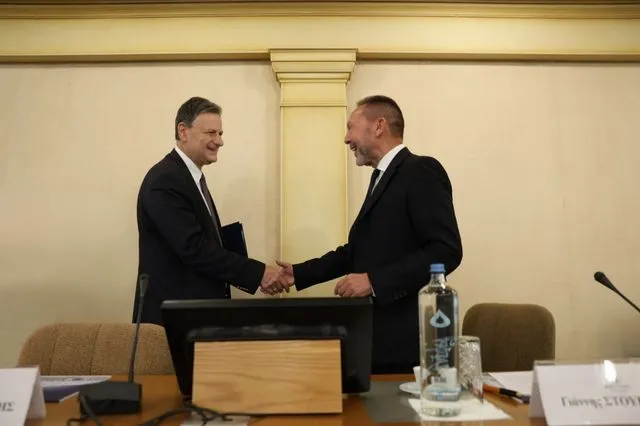
Benefits of up to €6 billion per year by 2050, which translates into 2.5% per year in GDP, throughout the energy transition, are expected to be achieved through the implementation of the actions and policies of the new National Energy and Climate Plan.
Indeed, research by Mckinsey estimates that 210 thousand jobs will be created annually, or 5% of the total workforce today over the same period, in the path to net zero in 2050. Referring to the €436 billion investment by 2050 that will be needed, Minister of Environment and Energy, Th. Skylakakis, noted that "this plan changes the deeper economic background of the country. This extremely important development will take place before our eyes in the coming years and we will not believe it. It will create new economic and industrial opportunities, a very significant improvement in our balance sheet. And this change is the basis for a strong Greek economy and for a strong Greece in the coming decades."
THREE PERIODS
As the Deputy Minister of Environment and Energy, Alexandra Sdoukou, stressed during the presentation of the ESDP, this plan is divided into three periods:
- 2025-2030: The rapid rate of wind and photovoltaic penetration is maintained, storage is increased and the milestone of decarbonisation is reached in 2028. Electrification of urban transport is accelerated while building renovations continue. At the same time, new sources such as biomethane, hydrogen and offshore wind are gradually being promoted, carbon capture and storage are being launched and large-scale heat pumps are increasing. In addition, major interconnections with other countries are progressing
- 2030-2040: Electrification of end-use sectors such as in buildings, transport and industry
- 2040-2050: Decarbonization of "hard to abate sectors". This concerns heavy transport, parts of industry, shipping and aviation. At the same time, however, technological solutions such as hydrogen, synthetic fuels and direct air capture are becoming competitive.
FOOTPRINT IN BUSINESSES
For energy-intensive businesses, the following is foreseen:
- Promotion of self-consumption of energy for large consumers by subsidising the installation of a storage system with a budget of €160 million
- Incentives for PPAs
- Priority for RES that enter into a PPA with an energy-intensive industrial consumer with a total capacity of up to 2. 400 MW
- The NFC set up a dedicated platform and the market was properly regulated. To encourage self-consumption, a subsidy program for battery installation and easier PPAs were made available. For example, a new program for green industrial PPAs with a total capacity of 2.4 gigawatts was made available.
For SMEs and tourism:
- subsidising cost reduction through energy saving, both through building interventions and replacement of business equipment and supporting self-generation
- promoting new financial instruments (SEA, interest rate subsidies)
For farmers:
- special attention, ensuring a stable and low tariff but also motivating self-generation
- the opportunity to dispose and recycle agricultural and livestock waste for use as a raw material for the production of agricultural products (e.g., for the production of agricultural products).
END OF SUBSIDIES
As Mr. Skylakakis said, "there is no room to subsidise, as we fantasise, the huge costs of this transition. Seven state budgets are not enough to subsidise this energy transition. I say this to be realistic to those who look at the NERC and see easy subsidies in it," he argued. Key, he said, is effective investments by sound entities that can borrow and repay those investments through borrowing and, above all, require that we don't make big mistakes. "We are, today, paying more money than we should for old subsidies. This is clear. We have, at times, built beastly factories, which will now have to be closed down when they have barely had time to open because they are no longer cost-effective," he said.






